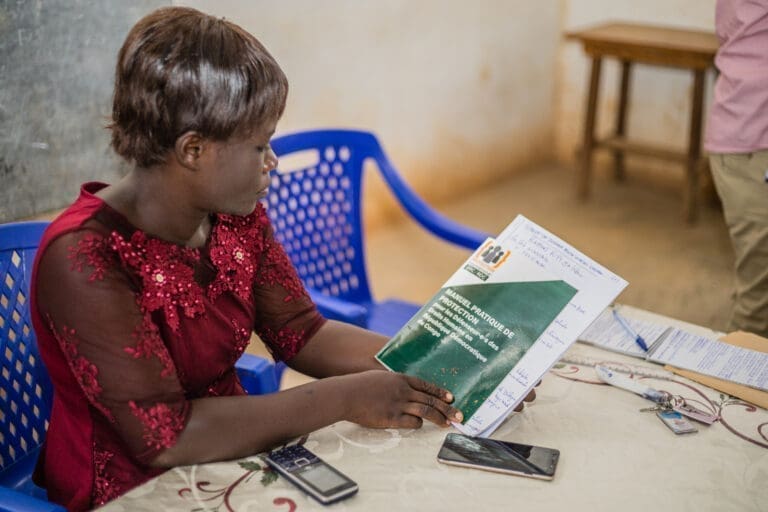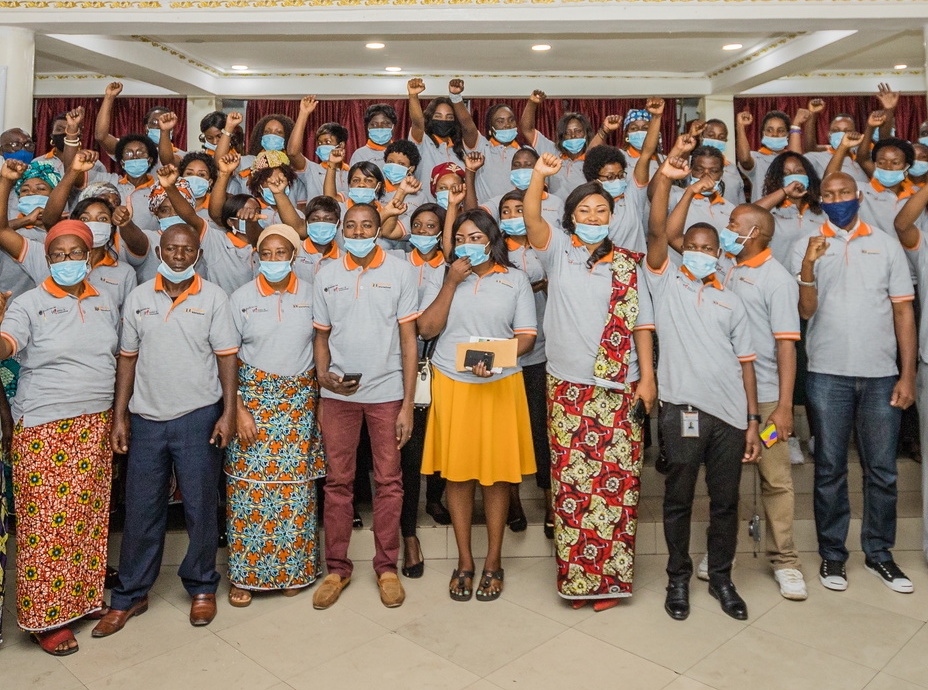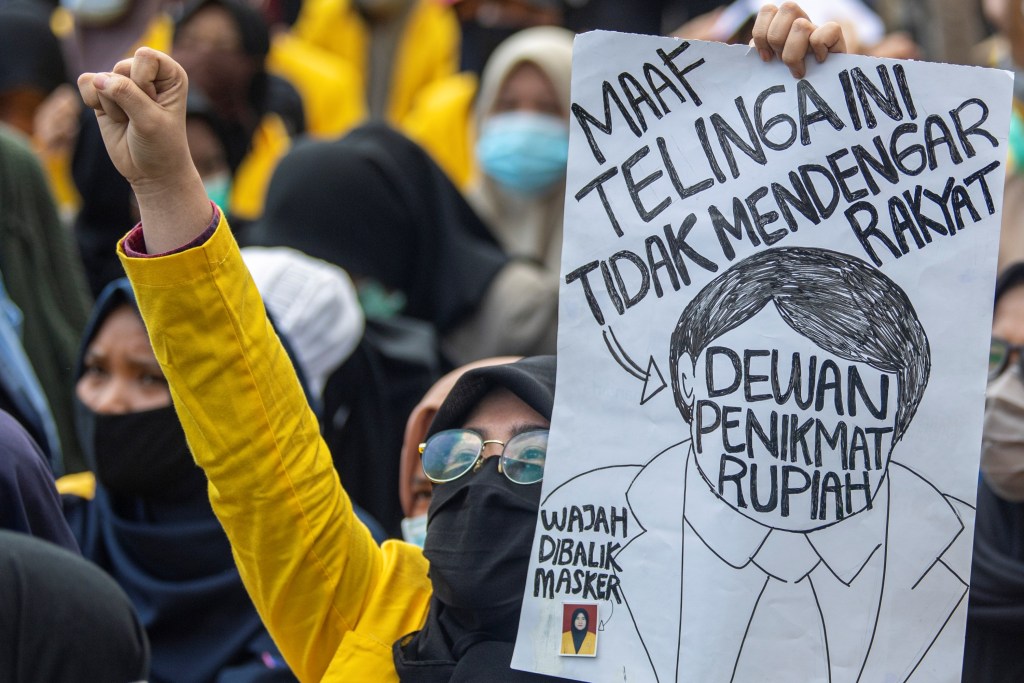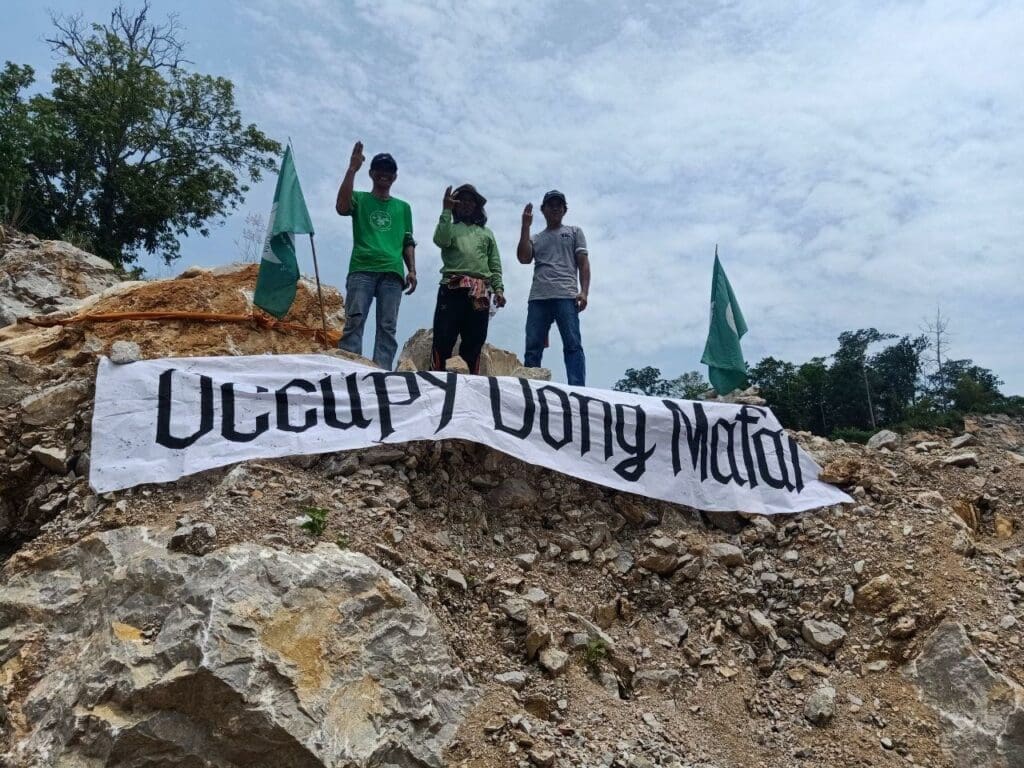Protection International works on the preventative protection of human rights defenders by focusing on the following thematic areas: Public policies, Collective Protection, Criminalisation, Business & Human Rights and Positive Narratives.
Public Policies
We firmly believe that the protection of human rights defenders (HRDs) should be rooted in a public policy approach, which provides the framework for the actions taken by the authorities to protect the right to defend human rights.

One of PI’s key areas of expertise has been the monitoring of and contribution to public policy initiatives for the protection of human rights defenders worldwide. This strand of work is core to PI’s mission, as it runs through the 3 pillars of our strategy:
- We support HRDs initiatives to advocate for national public policies that ensure a safer environment for their work;
- We advocate for State authorities to adopt public policies based on international standards on the protection of HRDs; and
- We persuade other relevant stakeholders to also advocate and contribute to the adoption of public policies for the protection of HRDs at national level.
We monitor from a critical perspective the development, implementation and impact of public policies for the protection of human right defenders via FOCUS: The Observatory on Public Policies for Defenders.
The Observatory on Public Policies for Human Rights Defenders is an online platform aimed at monitoring, analysing and promoting good practice in policy developments that governments and other state authorities adopt for protecting human rights defenders and their right to defend human rights. It also aims to keep track in the development of protection standards and recommendations by regional and international bodies.
Our key publications on public policies:
- (2022) The Worldwide Growth of National Policies for the Protection of Human Rights Defenders (in English, Spanish and French)
- (2021) Redefining the Risk approach: Designing and implementing a human rights defender-centric approach to protection (in English, Spanish, French, Portuguese and Arabic)
- (2017) The Time Is Now! Effective Public Policies for the Right to Defend Human Rights (in English and Spanish)
- (2017) FOCUS Report: Public Policies for the Protection of Human Rights Defenders (in English, French and Spanish)
- (2014) FOCUS Report: Public Policies for the Protection of Human Rights Defenders (in English)
- (2013) FOCUS Report: Public Policies for the Protection of Human Rights Defenders: The State of the Art (in English, Spanish and French)
- (2011) Protection of human rights defenders: best practices and lessons learnt (in English, French and Spanish)
Our research on public policies can be found in our publications catalogue here, including our latest publication, The Worldwide Growth of National Policies for the Protection of Human Rights Defenders (2022).
Collective Protection
The prevailing narrative on defenders is individualised, concealing the collective nature of human rights work. For protection to be effective, sustainable and reach a greater number of human rights defenders, we aim to shift this narrative towards a collective mindset.
We need to rethink and expand current HRDs protection mechanisms so that the protection of HRDs is provided both individually and collectively.

Protection Networks
A complementary theory and practice to collective protection of HRDs is the Protection Networks approach. PI has called “protection networks” (PN) are conceived as a process of strengthening the capacities on non-violent self-protection of communities and their territories as collective subjects, and which are embedded into their own social networks and existing practices.
From there, new connections are established with support organisations and institutions, whether local, national or international. This broader network of solidarity towards the territory is key, breaking the isolation of HRDs, which is also one of the elements favouring the impunity of the aggressions. Moreover, the networks allow the coordination of capacities to respond to specific needs such as technical advice, legal support, advocacy, economic support, etc.
Hence, PI’s intervention model assumes that HRDs and their CSOs are not “objects” of protection but rather “subjects” and actors of their own protection. The challenge is to ensure that protection networks do not constantly behave in an emergency and reactive mode to the events that occur, but that they are able to influence the context with preventive strategies based on the idea of risk assessment and prevention.
Our key publications on collective protection and protection networks:
- (2016) Manual para prevenir la criminalización de los defensores del derecho a la tierra y el territorio (in Spanish)
- (2017) Collective protection on human rights defenders of the right to land and territory in Colombia: Conceptual developments and methodological challenges (in English and Spanish)
- (2018) Collective Protection of Human Rights Defenders ǀ A collective approach to the right to defend human rights (in English, Spanish, French, and Russian)
- (2020) Taking Care of Us – A Guide for the Collective Protection of Human Rights Defenders in Rural Areas (in English, Spanish and French)
- (2022) Sharing knowledge on collective protection of black women human rights defenders (available in Portuguese)
Criminalisation
Criminalisation is a multifaceted phenomenon that makes use of criminal laws and provisions in other types of laws to attack human rights defenders (HRDs) with the aim to hamper their work in the defence and promotion of human rights.
Understanding the nature of criminalisation:
- It is a process, which takes place through police interventions, criminal investigations and proceedings, and even the condemnation of HRDs.
- It is an outcome that produces a negative impact not only on the work of individual HRDs, but also on the security and well-being of their families, civil society organisations, and the social movement in a country as a whole.


Stages of criminalisation
- A primary stage involves laws and normative frameworks like criminal law, regulation against terrorism, and criminal provisions contained in administrative or labour laws to pursue political goals. The so-called “NGO laws”, which are adopted to regulate heavily on the registration and operations of civil society organisations (CSOs), have become the quintessential manifestation of legal frameworks geared at shrinking civil society space and criminalise the work of HRDs.
- The secondary stage involves a set of different actors who intervene in the criminalisation process: public actors (e.g. police, government officials, lawmakers, justice systems operators – e.g. judges, prosecutors, etc.) and private ones (e.g. businesses, media).
Counter-strategies
There are two main kinds of actions:
- Reactive actions deal with concrete cases.
- Preventive actions that aim to fight back and confront stigmatisation and the preliminary steps leading to criminalisation.
Therefore, interventions to counter criminalisation need to adopt a multi-pronged approach to make an impact:
- Political: There are three scales of intervention – local, national and international – that can be intertwined. It involves activating and fostering networks of support at the local, national, and international levels. It also involves carrying out more public diplomacy by key stakeholders.
- Legal: legal strategies are used to counter “negative” national laws that need to be challenged through regional and international courts while promoting “positive” laws which recognise the role of HRDs and provide a framework for state action when at risk. Moreover, legal strategies can also be geared at pushing for greater accountability of judicial system operators (e.g. prosecutors or judges) who are instrumental in criminalising HRDs.
- Financial: Financial support to CSOs needs to involve more flexible funding and support to setup resistance funds to cover the expenses linked to the legal defence of the criminalised HRDs. Support should not be limited to assist criminalised individual HRDs, but should also cover their families and even the civil society organisations (CSOs) defenders collaborate with. It should also include psychosocial support in order to counter the insidious effects that come with stigmatisation.
Our key publications on collective protection and protection networks:
- (2010) Criminalización en contra de Defensoras y Defensores de Derechos Humanos. Reflexión sobre Mecanismos de Protección (in Spanish)
- (2015) Criminalisation of Human Rights Defenders | Criminalisation Series #1 (in English, Spanish and French)
- (2017) Criminalisation of rural-based human rights defenders in Kenya | Criminalisation Series #2 (in English)
- (2018) Criminalisation of la Lucha movement in DRC | Criminalisation Series #3 (in French)
- (2018) Stigmatisation and Criminalisation of Human Rights Defenders in Guatemala | Criminalisation series #4 (in Spanish)
A full catalogue of our research and publications on criminalization can be found here.
Business & Human Rights
At Protection International, we believe that the benefits of economic development, growth, and prosperity must benefit society as a whole, not just a privileged few.
In the area of business and human rights, Protection International adds it voice to campaigns on The United Nations Guiding Principles on Business and Human Rights, the EU Corporate Sustainability Due Diligence Directive, and on zero tolerance to reprisals policies within multilateral international financial institutions.
Concretely, we are a member of the Justice is Everybody’s Business coalition, calling for the EU Corporate Sustainability Due Diligence Directive to include explicit provisions on the protection of human and environmental defenders.
Our work advocating for due diligence and reparations towards multilateral international financial institutions is done through the Coalition for Human Rights in Development, which gathers communities and civil society groups around the world, to call upon development finance institutions, governments, and businesses to stand up for human rights.
As one of the founding members, through the Zero Tolerance Initiative, we call on States, businesses and investors to have a zero-tolerance policy on reprisals against environmental human rights defenders.
In the context of natural resource extraction, infrastructure development and investment, we see an environment where human rights defenders who speak out about development projects find themselves labeled and stigmatised as “anti-development” and subjected to threats, intimidation, detention, and violent attacks by state and non-state actors (including private national and multinational corporate interests) in an attempt to silence and hamper their struggle.
In PI, we are joining forces with the communities and civil society groups around the world, calling upon States, businesses and investors to protect HRDs by taking the following steps:
- Promote Rights-Respecting Development. Adopt a policy commitment to respect human rights and implement due diligence to prevent human rights violations.
- Protect Civil Society Participation. Ensure meaningful voluntary participation and informed consent in development processes and promote an enabling environment for civil society.
- Defend the Defenders. Adopt a zero-tolerance policy on attacks against human rights defenders and enact protocols to prevent and respond to such attacks while fighting the impunity that benefits aggressors.
Defending the Role of HRDs: Promoting Positive Narratives & Countering Stigmatisation
The safety and agency of HRDs are significantly affected by how they are perceived. Relations of domination, discrimination, and the imbalance of power influence the visibility of defenders’ struggles and the support they receive. For that reason, PI sustains that, when discussing HRDs’ protection, the defence of human rights must always be contextualised and cannot be depoliticised.
Over the past decade and with the rise in the use of mass media, stigmatisation has been used to challenge the legitimacy of HRDs’ struggles. Common tactics include name-calling, public shaming, insinuations, spreading false rumours and lies (defamation), exaggeration, smear campaigns, red-tagging, and the overall dissemination of negative, discriminatory messages about them and/or their work. We have also witnessed the use of smear campaigns as a tactic that precedes acts of criminalisation of HRDs’ actions, with the objective to weaken public support and reaction.
The sum of multiple negative messages targeting the same individual or group, in a given context, contributes to form a negative narrative around them and their work. In contexts where the dominant narrative around HRDs is negative, the risk of threats and attacks increases, while public support is reduced. Such environments tend to normalise and justify violence against those speaking up, therefore enabling aggressions and perpetuating discrimination, social exclusion, and racialisation. Stigmatising narratives may also have very negative impacts on HRDs’ psychosocial wellbeing.
Protection International is committed to countering these stigmatising discourses and helping shape positive narratives that uphold the right to defend human rights in the countries and regions where we work. Our narrative projects aim to improve the perception of human rights defenders’ role and work, and more specifically of those facing stigmatisation.
Here are some examples of our work around this topic:
- In Colombia, we have conducted research and gathered insights from social leaders, human rights defenders, and community communicators. Together, we co-create strategies to reconceptualise their experiences and narrate their actions within the territory. We have partnered with Verdad Abierta to amplify the voices and experiences of stigmatised communities. The website Verifico serves as a fact-checking platform where public stigmatising discourses —notably those coming from public authorities or so-called influencers— are analised and exposed.
- In different countries in Africa —Kenya, Togo, Democratic Republic of Congo, etc.— PI Africa teams have carried out communications workshops and designed social media campaigns such as #MeetADefender – #RightToDefendHRs, portraying the work of HRDs such as Perpetua Kariuki from Kenya, Passy Mubalama from DRC or Oleic Ndanyoya from Tanzania.
Besides this programmatic work, we keep aiming to strengthen our teams’ capacities and skills in this sector, to carry out research and to make sure that our communications contribute to promote a fair and realistic portrait of the HRDs we work hand in hand with. We revisit our communications permanently to avoid clichés and stereotypes about the figure of the “typical human right defender”, the depolitisation of HRDs’ struggles or the simplifications of their identities. Our publication A Critical Approach to the Right to Defend Human Rights analyses critically the traditional or mainstream “human rights defender” cliché.
Finally, as a good practice in our daily communications work, we have embraced the principles of the Hope-Based Communications approach and joined their movement.
